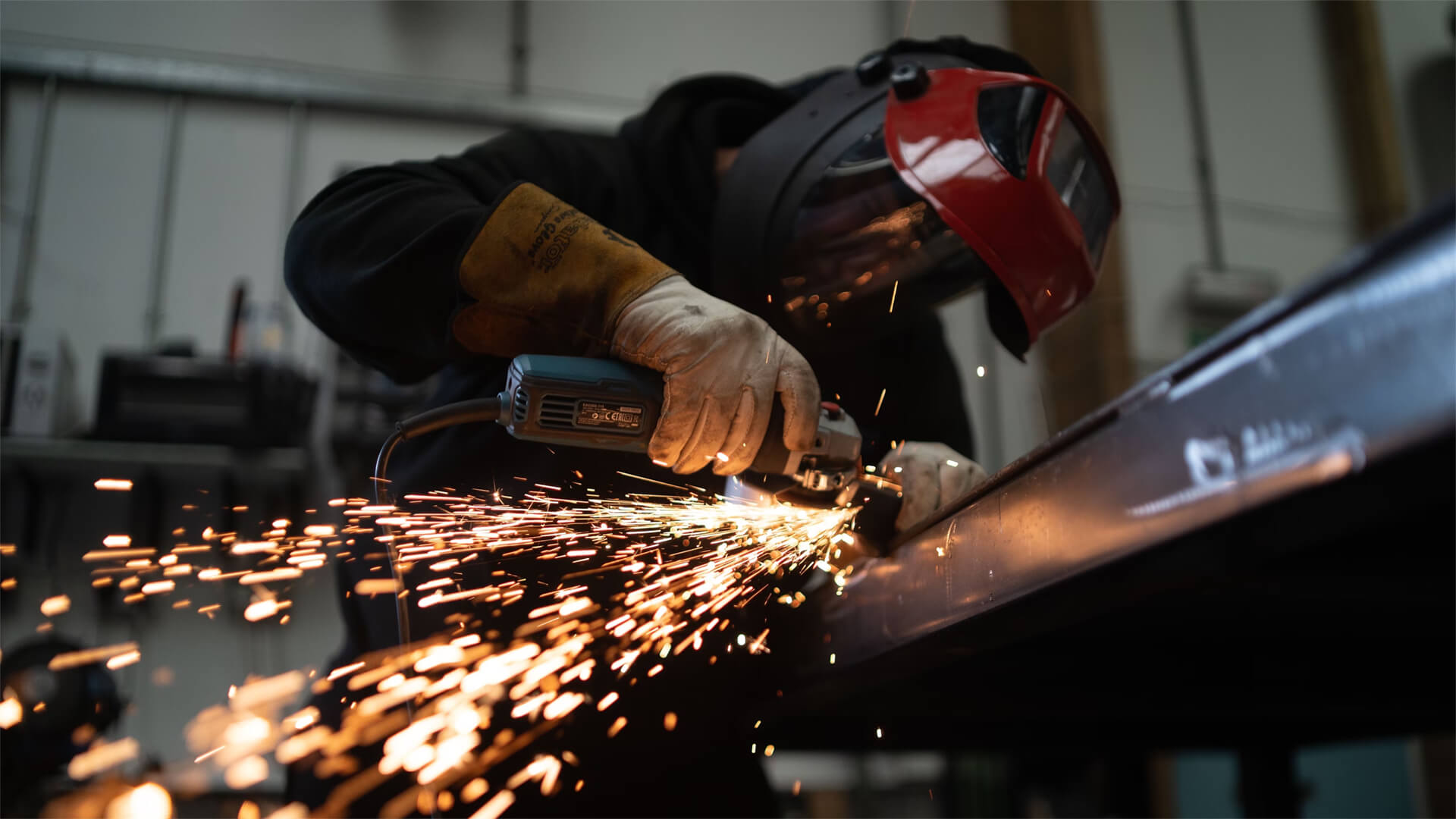Another layer of the challenges facing the Trump administration is the fallout from a Chinese collapse and what it will mean for US reindustrialization.
China is the world’s manufacturer, but just about everything is going wrong for them. Between demographic and economic decline, trade blockades, and a collapsing workforce, China won’t be around for much longer. So, everyone else will have to find another way to get their stuff.
That means reindustrialization and the US is nowhere near being ready to take on that load. We’ll need to rebuild industrial capacity, expand the electrical grid, and address labor shortages. If Trump fails to do that before China goes off the deep end, we’re going to experience product shortages and record inflation, cementing Trump’s legacy as the man who made American something less than…great. Or maybe, just maaaaaybe, the old/new president can address these issues and shepherd the United States into a new golden age. fingers crossed
Here at Zeihan on Geopolitics, our chosen charity partner is MedShare. They provide emergency medical services to communities in need, with a very heavy emphasis on locations facing acute crises. Medshare operates right in the thick of it, so we can be sure that every cent of our donation is not simply going directly to where help is needed most, but our donations serve as a force multiplier for a system already in existence.
For those who would like to donate directly to MedShare or to learn more about their efforts, you can click this link.
Transcript
Hey, everybody. Peter Zeihan here. Coming to you from the top of French Ridge in the Motoki Tuki Valley of New Zealand. This is the first place I ever went backpacking in the country. And I haven’t been back in 27 years. So just as hard as I remember it when I was 23. Okay. We are going to continue on with the Trump 2.0 series today, specifically the sort of domestic issues that are going to be waiting for the president.
Really, this is a China, China, China situation. But from an economic point of view, rather than a geopolitical one. Let’s review, China’s dying, birthrate has dropped by over half in the last six years. They now have more people over age 50 than under. And their workforce is in the early stages of collapse. Their population has been in a state of collapse for over 20 years.
But, when you run out of people aged 0 to 20, you really don’t feel it in your consumption or your investment or your tax base. You’re just paying for less education. Well, that has now been going on for 45 years, and they’re running out of new people to bring into the system. At the same time, they print currency like mad.
Like, you know what the gold bugs say that the US Federal Reserve does, China actually does. But like times five, they expand their money supply by about 500% more than the United States has on a monthly basis. And so that drives up asset prices, which makes it for more difficult for the young people to do anything because, think about if everyone in the United States was over 40, was buying a vacation home, how hard it would be to start out if you were in your 20s.
Now, I’ll apply that to China. So you’ve got all this massive real estate build and absolutely no chance that someone young can get in on it. So we are looking at a national collapse here and a population collapse and probably a civilizational collapse. The only question is time frame. If I was to, put a date on that and yes, yes, yes, putting dates on things like that is hard.
And that is, the most difficult part of what I do. I would expect a complete economic breakdown within a decade and then probably a national breakdown. What’s the ten years after that, anyway? One way or the other, the Han ethnicity is not going to survive in this century under Donald Trump. Donald Trump absolutely is. Rare.
And to pick a fight with the Chinese on trade issues, he’s been talking about massive tariffs to stack on top. He and Biden actually are pretty close together on these issues.
Trump enacted a lot of Selective tariffs on specific items as well as blanket tariffs. Biden didn’t peel any of those back.
Biden went in and did tech tariffs to prevent technology transfer. And now that Trump is back, I find it very unlikely that he’s going to peel back anything that, Biden did. If anything, he’s going to double down on it. So the way that China has traditionally dealt with its demographic collapse and making sure that the economy can go is again printing lots of currency, building lots of industrial plant and then exporting it.
Well, under Trump, that worked. But it’s no longer working under Biden because Biden has basically marshaled the entire Western alliance to act against things like tech transfer and most notably, electric vehicles and automotives. And so the Chinese don’t have any place to dump it. It’s gotten so bad that even the Russians and the Brazilians and the Turks are basically blocking Chinese imports.
So we have all this new productive capacity coming online in China, nowhere to send it. We’re getting an inflationary and a deflationary pulse in China at the same time, which is like the worst kind of bad. Anyway. Bottom line is that Trump is very clearly wanting to pick a trade fight, but it doesn’t appear that his incoming administration has given any thought to what happens should he win.
China is the workshop of the world, and while there are certainly sectors that Americans would like to keep the Chinese out of, they are the single largest presence in almost every industrial sector and their sudden disappearance. And it probably will be sudden because it will be, involving a degree of government and economic collapse. Then what?
Because we still need the stuff. And if the Chinese are incapable of building it, suddenly we are in a very, very new sort of economic cycle. So, you would fix this by massively expanding the industrial plant and the manufacturing base in the United States. But you don’t do that quickly. You don’t do it overnight, and you don’t do it cheaply.
So the smart play, if you’re looking for recommendations here, is to take whatever income comes in from tariffs, regardless of how they’re sourced, and actually use them to underwrite the construction of an industrial plant, starting in industrial processing, things like turning, bauxite into aluminum, things like steel, and then moving into, more and more sophisticated manufacturing.
That requires a degree of organizational build out that the United States doesn’t have. The United States hasn’t had an industrial policy like that since World War Two. Luckily, Joe Biden and Donald Trump are the only two Americans left alive who remember any of that day. Yes, yes, yes, they’re about the same age. So hopefully, somebody on Team Trump will know what to do with that.
But we’re starting from almost scratch. Everything that the Biden administration did along those that path was dealing with environmental issues in some way EVs, solar panels, that sort of thing. And I’m not saying that that was bad, but that’s just a one very, very narrow niche for what is necessary to be done. We need a multitrillion dollar build out as quickly as possible.
Second, powering it. It’s not that the United States needs oil or natural gas. We are awash in that. And energy policy under Trump suggests that he wants to build up that advantage even more. The problem is electricity. It takes a lot of power to stamp and mold and move things that you don’t need when you’re basically doing digital work.
So we need to expand the grid on a nationwide basis by at least half, and places that are likely to see the biggest industrial build out, places like the Rocky Mountains, the classic South, and Texas, they probably need to double the grid within five years, which is just a massive task. But I haven’t seen anyone from Team Trump even breathe the word electricity when discussing the energy situation.
It’s all about oil. It’s all about natural gas. It’s even about taking things like windmills out of the equation, which I think would be unwise since, you know, Texas gets 15% of their electricity from now. The easiest way. There’s nothing easy about it, but the easiest way to do that is to make it much, much easier for electrical cooperatives and electric companies to import and export power across jurisdictional boundaries, whether that is across the, the seams that separate the three big grids in the United States, whether it’s among states, whether it’s within states that cross from, say, a co-op to a city’s, power system, we need everyone who has a competitive advantage, whether it’s in capital, in labor, in sourcing because of green tech, in sourcing, because of natural gas, to be able to put up a power plant and send that power to where it is needed. Doing that, of course, requires significant reform of the electrical grid in its current form and a whole lot of build out. And Donald Trump is famous for many things, but managing what is functionally a new department, creating it from scratch is not something he seems to have considered at all.
Third is labor. If we’re going to expand the industrial plant by half, that’s a whole lot of workers that the United States doesn’t have right now. In fact, the United States, since, Covid is facing a worker bust for two reasons. Number one, we have started this re industrialization. We are seeing expanding, labor in all of us.
Sorry. We are seeing an expanding labor demand in all of these sectors. But too far more importantly, the baby boomers are leaving us two thirds of them have already retired. The oldest ones are starting to die. They’re leaving the labor force in numbers, like when they entered the labor force back in the 1960s. And we have to basically do almost all of this work with just a fading remnant of labor from the boomers.
There is no indication from Team Trump that, workforce training for blue collar workers is something that’s particularly high on the list. And if anything, all this talk of mass deportations of, illegal workers from the United States is going to actually tighten the labor supply. So basically, we’ve got two scenarios here, and it’s going to be up to Donald Trump and his team to decide which one to go.
Number one, you smash China while they’re down. You kick them in the face, you break them, but you fail to build up the industrial capacity. You fail to build up the electrical capacity, and you’ve got the labor force at the same time that will generate a shortage in every possible consumer and industrial good at the same time, while also generating the fastest inflation that the United States has ever experienced.
And Donald Trump will go down in history as the president who broke it all, or you build up the electrical grid, you find a way to square the circle with illegal migrants, you expand workforce training, and you repurpose the capital that was coming in from tariffs to actually build up the industrial plant faster. And Donald Trump goes down in history as both the president who broke China and set the stage for a new fundamental age of American economics.
I know which one I’d rather see.







